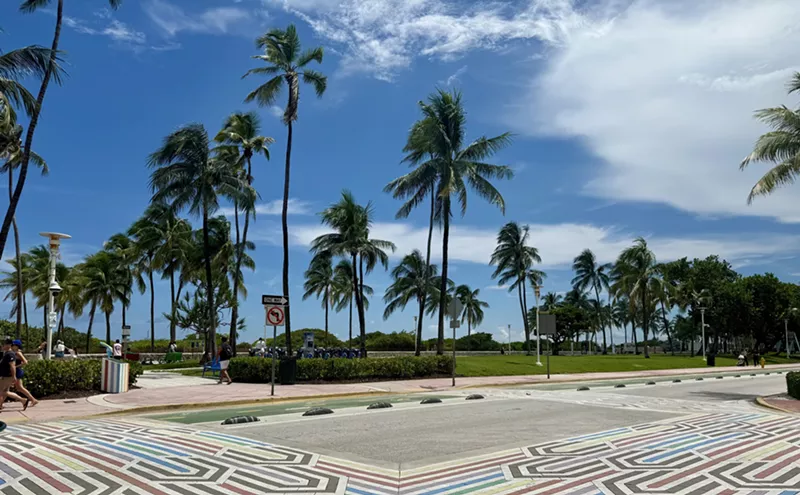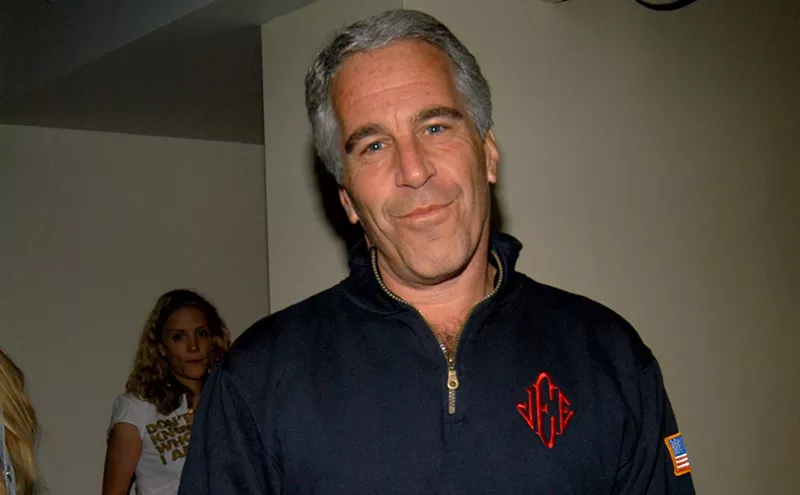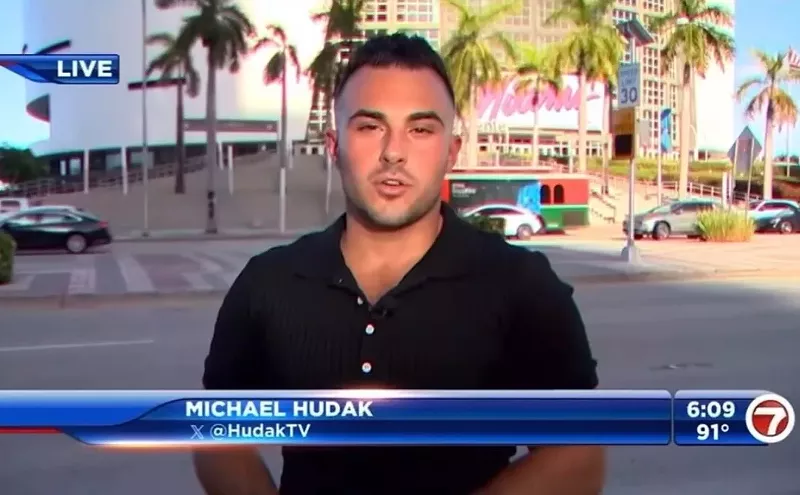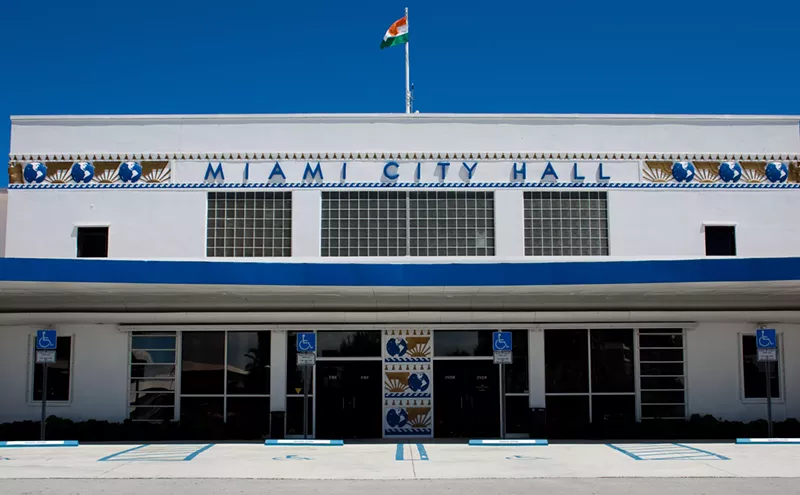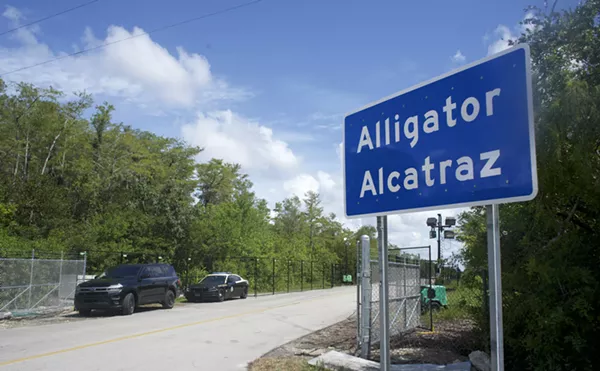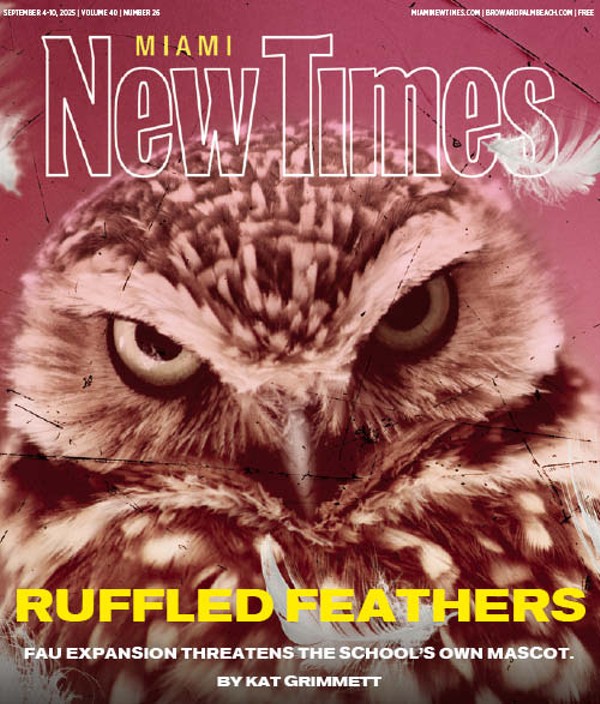As early as 1998, the American Psychiatric Association issued a warning about conversion therapy, saying that anti-gay counseling combined with an already-prejudiced society "may reinforce self-hatred already experienced by the patient." A host of other academic and medical organizations have since agreed, citing research showing conversion therapy can lead to depression, substance abuse, and suicide.
But the practice, which essentially involves counseling gays and lesbians into "becoming" straight, somehow still exists today.
In Miami, however, commissioners are looking to ban conversion therapy from city limits. Commissioner Francis Suarez is sponsoring the bill, which went to a first reading at yesterday’s commission meeting. The proposed ordinance is strong in its rebuke of the practice, saying clearly that "being lesbian, gay, bisexual, or transgender is not a disease, disorder, illness, deficiency, or shortcoming."
Suarez says that for the past few months he's been speaking with SAVE Dade, a local LGBT rights group, about the damaging effects of conversion therapy.
"When I looked at sort of the psychological impact of this kind of supposed therapy, I was troubled," Suarez says.
Although he’s unaware of businesses that practice conversion therapy in Miami, Suarez says he wants to make the city’s position clear.
"I think more than anything it’s about setting forth what our practice is and our public policy on the issue," he says. "We’re a very inclusive city, and we want to make sure that our public policy as a city is one of inclusion."
Under the proposed ordinance, practitioners who violate the law would be fined $500 for each conversion therapy session. Although it’s a punishment that doesn’t have the teeth a state law could, activists say it’s a start.
"Municipal laws aren’t perfect because they can’t govern licensing boards and threaten to take away people’s licenses," says Justin Klecha, SAVE Dade's director of campaigns.
SAVE Dade began working to get local governments involved after the Florida Legislature has twice failed to pass a statewide ban. In 2014 and again last year, Rep. David Richardson, who represents most of eastern Miami-Dade County, introduced legislation that would have banned conversion therapy in Florida. But those bills failed to gain traction.
"The state could absolutely take this on and ban it across the state, but in this conservative Legislature, it’s very difficult to have a bill like that pass, even if it means helping children and young people," says SAVE Dade's president, Tony Lima. "Instead, we’ve had to go municipality to municipality."
In June, Miami Beach became the first city in Florida to ban conversion therapy, and Wilton Manors introduced an ordinance in late August. Wilton Manors Commissioner Justin Flippen led the charge, saying he himself went through conversion therapy as a young adult.
"I could not imagine allowing younger minds to be subjected to it," he said at a commission meeting August 23.
So far, most local governments approached by SAVE Dade have been amenable. The group has set its sights on Miami Shores, Bay Harbor Islands, and North Bay Village next.
“The reception so far has been just fantastic from our friends at the municipal level,” Klecha says. “They’ve pretty much all agreed that it’s an outdated practice that’s harmful to children.”

Audio By Carbonatix
[
{
"name": "GPT - Billboard - Slot Inline - Content - Labeled - No Desktop",
"component": "22004575",
"insertPoint": "2",
"requiredCountToDisplay": "2"
},{
"name": "STN Player - Float - Mobile Only ",
"component": "22595215",
"insertPoint": "2",
"requiredCountToDisplay": "2"
},{
"name": "Editor Picks",
"component": "17482312",
"insertPoint": "4",
"requiredCountToDisplay": "1"
},{
"name": "Inline Links",
"component": "18711090",
"insertPoint": "8th",
"startingPoint": 8,
"requiredCountToDisplay": "7",
"maxInsertions": 25
},{
"name": "GPT - 2x Rectangles Desktop, Tower on Mobile - Labeled",
"component": "23181625",
"insertPoint": "8th",
"startingPoint": 8,
"requiredCountToDisplay": "7",
"maxInsertions": 25
},{
"name": "Inline Links",
"component": "18711090",
"insertPoint": "8th",
"startingPoint": 12,
"requiredCountToDisplay": "11",
"maxInsertions": 25
},{
"name": "GPT - Leaderboard to Tower - Slot Auto-select - Labeled",
"component": "17720761",
"insertPoint": "8th",
"startingPoint": 12,
"requiredCountToDisplay": "11",
"maxInsertions": 25
}
]


